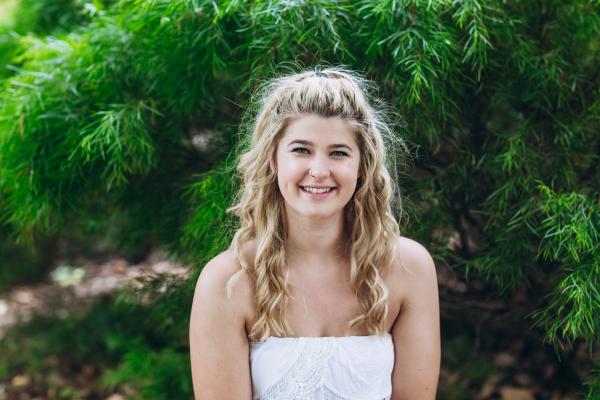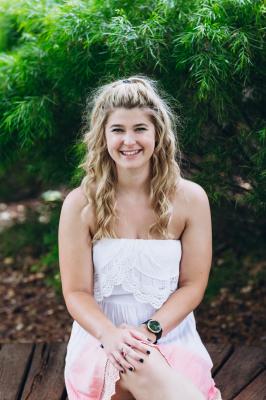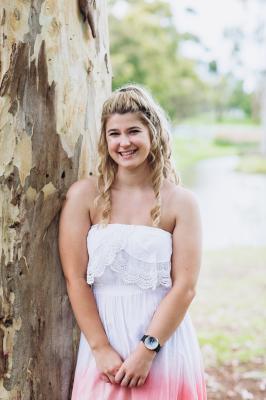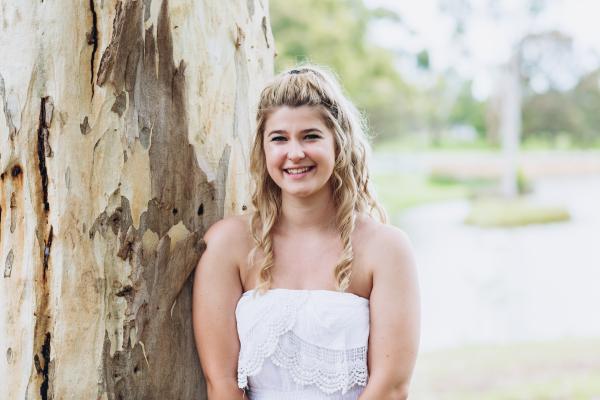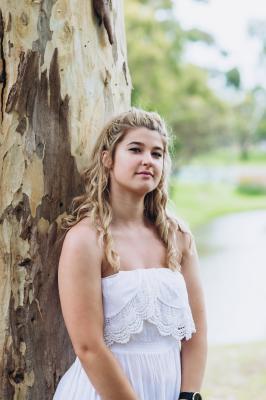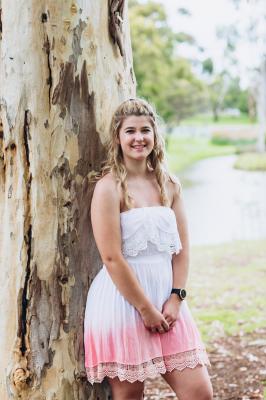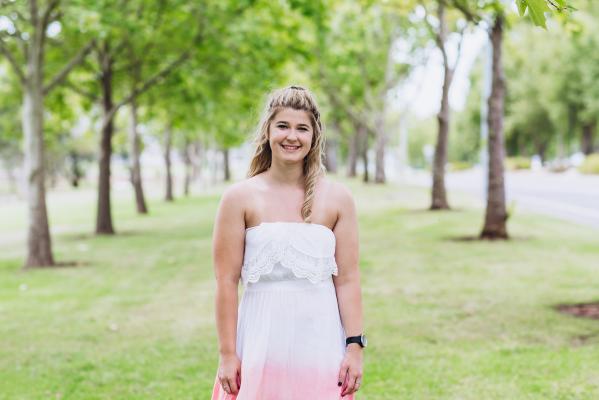After suffering anxiety and depression as a teen and young adult, Olivia Valpied is now using her experience to help others. Luke Voogt discovers how.
Olivia Valpied’s anxiety stemmed from her parents’ separation and an uncertain relationship of her own as she prepared to head into year 12.
“That was all around the same time,” Olivia, now 22, remembered.
“I had a lot of high expectations on myself with schoolwork and I was still pretty anxious with some social situations. I think it was everything combined.”
The then 17-year-old worried – unnecessarily it turned out – about her first long-term boyfriend.
“I was always anxious about how that person felt about me and I just wasn’t trustful or secure,” she said.
But Olivia only began to see her anxiety as something she needed to address four years later, after moving out of home in Ballarat to Geelong.
She was studying her second year of a double degree in criminology and psychology, which she had wanted to do since watching The Mentalist in year 7.
“When I started to live with other people I began to notice my anxiety was a bit different, other people weren’t getting as stressed over certain things,” she said.
“I was overthinking and not sleeping well. That’s when I started to think, ‘OK, I’ve got to look into this’.
“Anxiety is a lot of thinking the worst – you think you have to prepare for all the worst-case scenarios.”
Her anxiety might not have been obvious to her new friends and housemates, she said.
“You can have high-functioning anxiety, where you’re achieving really well on the outside but you’re still experiencing a lot of the same symptoms within.”
She began seeing a psychologist, who taught her methods to manage her symptoms.
“It’s having a lot more self-awareness about things that might trigger me and knowing when I need to talk to someone about it or seek support,” she said.
The following year Olivia suffered bouts of depression.
“I was really burnt out and I didn’t have the best social relationships,” she said.
“There were times in 2019 where those darker thoughts were there.”
But again she overcame this with professional and personal support.
Later that year she discovered Black Dog Institute’s Breaking Down Depression presentations.
The presentations involve trained volunteers, who have experienced mental illness personally, providing evidence-based information on symptoms, warning signs and treatment options.
Initially Olivia applied to gain some experience volunteering.
“But now I feel like it’s become something more – I’m spreading mental health awareness and education,” she said.
“It definitely gives you a sense of pride and achievement, feeling you’re able to help people.”
She was “a good type of nervous” when she gave her first presentation to about 20 people last March, just before COVID-19 hit.
Like many, Oliva initially struggled with the uncertainty and isolation of COVID-19, but she concentrated on the positives and found new ways of connecting with people online.
“I had my last year of uni so I was able to throw myself into that too,” she said.
She also helped others suffering the mental health impacts of COVID-19 by giving another five Breaking Down Depression presentations online.
“The pandemic has been a stressful time for everyone and has created feelings of isolation for students who are missing being on campus with their friends,” Olivia said.
“I’ve been showing the students how they can build resilience through self-care, finding a hobby, or networking with their peers through Facebook groups.
“It’s also important for anyone who is feeling sad or anxious to talk about their feelings to their doctor or someone they trust. There is lots of support available.”
According to Black Dog Institute, 65 per cent of people suffering mental illness do not seek help.
To book a presentation email community@blackdog.org.au. For help phone Lifeline on 13 11 14.


